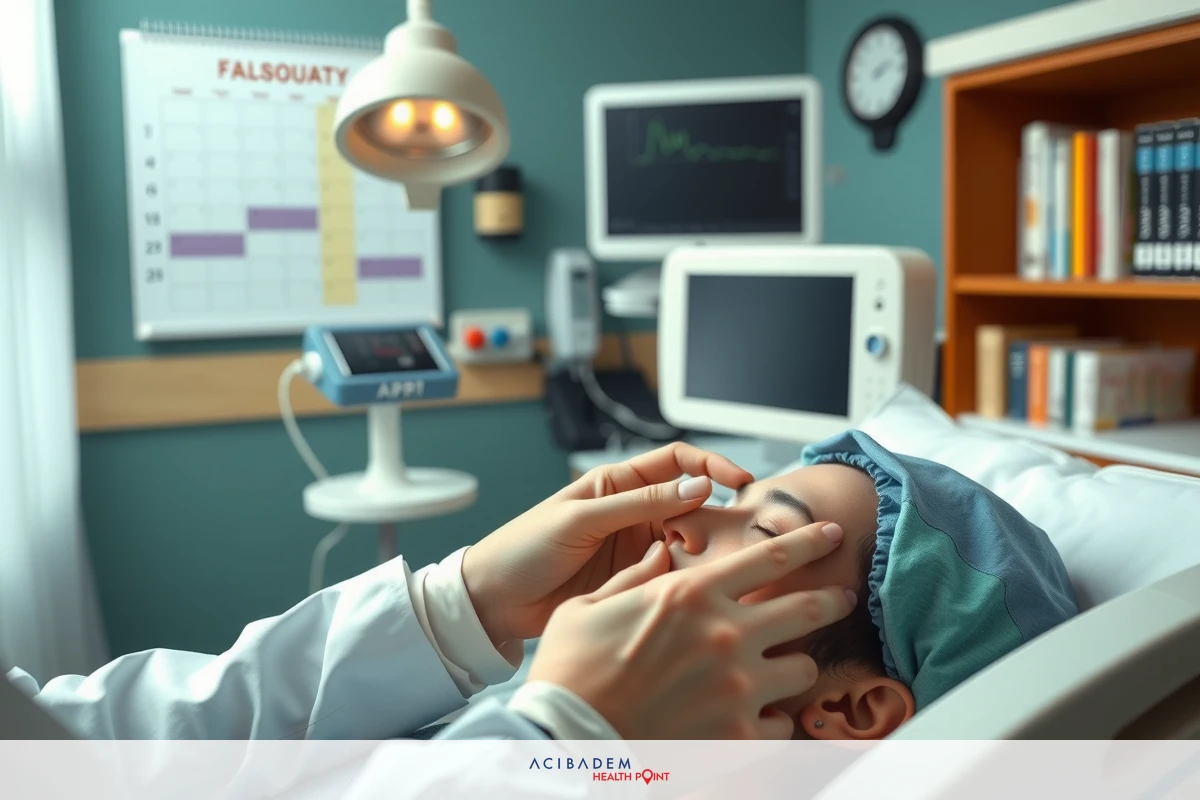How Long Does Necrosis from Rhinoplasty Take to Heal?
How Long Does Necrosis from Rhinoplasty Take to Heal? Necrosis after rhinoplasty, a rare yet serious complication, piques curiosity due to its unpredictable healing timeline. The length of recovery hinges on multiple factors, each unique to the individual undergoing this facial reshaping process. Essential aspects like overall health status, age, and adherence to post-operative care can drastically alter the healing duration.
Rhinoplasty-induced necrosis manifests through symptoms that mirror skin tissue damage; hence understanding these signs aids in timely intervention for successful treatment. Recognizing the factors influencing recuperation time and embracing strategies for optimal healing underscores this article’s objectiveempowering readers with knowledge on managing necrosis following rhinoplasty effectively.
Necrosis after Rhinoplasty
Necrosis, symbolizing death of skin tissue, can possibly emerge as an unwelcome guest post-rhinoplasty. The surgical procedure involves reshaping the nose by modifying bone or cartilage structures beneath the skin. However, these alterations might lead to compromised blood supply in certain areastriggering necrosis.
The symptoms typically range from discoloration of skin around the nasal area to severe cases involving exposure of underlying tissues. Noticeable changes may include a shift from healthy pink flesh tones towards darker shades like purple or black. Additionally, feelings of numbness or pain often accompany visible signs.
One cannot accurately predict healing time for necrosis following rhinoplastyits a complex process influenced by numerous variables. Yet understanding its causes and identifying early symptoms pave ways towards swift recovery strategies and minimization of potential complications.
Factors Affecting Healing Time
The healing timeline for necrosis ensuing rhinoplasty is an intricate jigsaw puzzle with numerous pieces fitting together. Many variables come into play, each exerting its influence on the recovery journey. Let’s dissect these factors to gain a better grasp of what determines the length of this healing voyage.
- Individual Health Status: The overall health condition of the patient can significantly impact recovery time. Those with robust immune systems and no underlying medical conditions may experience quicker healing.
- Age: Younger patients tend to recover faster due to their bodies’ natural regenerative abilities, while older individuals might need more time for complete healing.
- Post-Operative Care: Adherence to prescribed post-operative care routines plays a crucial role in promoting swift recovery and minimizing complications.
- Surgical Skill Level: Proficiency and experience level of the surgeon involved in conducting the rhinoplasty can also affect healing durationexpert surgeons are likely to cause less tissue damage, thereby reducing necrosis possibilities.
- Lifestyle Habits: Healthy lifestyle habits such as balanced diet intake and regular exercise contribute positively towards speedy recuperation; conversely, harmful practices like smoking could prolong it by impairing blood circulation.
Understanding these elements helps set realistic expectations regarding necrosis recovery following rhinoplastyits indeed fascinating how each factor intertwines with another, collectively shaping up the unique path towards complete restoration!
Tips for Promoting Healing
Embarking on the journey towards recovery following necrosis post-rhinoplasty can appear daunting. However,

with an armory of effective strategies and conscientious efforts, this voyage to restoration can be significantly eased. Here are some constructive tips that could aid in accelerating healing and minimizing the overall duration of necrosis.
- Follow Post-Operative Instructions: Adhering strictly to your surgeon’s post operative instructions is paramount. This may include medication schedules or specific care routines to ensure optimal healing.
- Maintain a Healthy Lifestyle: Incorporating wholesome nutrition and staying well-hydrated aids your body’s natural healing processes while abstaining from harmful habits like smoking promotes better blood circulation.
- Rest Adequately: Ensuring sufficient rest post-surgery provides your body a conducive environment for efficient tissue repair and regeneration.
- Avoid Excessive Physical Strain: Refrain from intensive physical activities that might put undue stress on the surgical areaallowing it time to heal without hindrance.
- Regular Follow-up Appointments: Regular check-ups with your surgeon help monitor progress closely, allowing timely intervention if necessary.
Armed with these proactive measures, one can navigate through the challenges posed by necrosis after rhinoplasty more confidentlytransforming what initially seemed an uphill battle into a manageable journey towards complete recovery!
Frequently Asked Questions
What is necrosis in the context of a rhinoplasty procedure?
Necrosis refers to the death of skin tissue, which can occur post-rhinoplasty due to compromised blood supply during the surgical reshaping process. Symptoms may range from discoloration around the nasal area to exposure of underlying tissues.
How long does it typically take for necrosis after rhinoplasty to heal?
Accurately predicting healing time for necrosis following rhinoplasty is complex as it's influenced by multiple factors unique to each individuallike overall health status, age, and adherence to post-operative care instructions.
Are there ways I can promote faster healing if I experience necrosis after my rhinoplasty surgery?
Yes! Following your surgeons post-op instructions carefully, maintaining a healthy lifestyleincluding proper nutrition and hydrationand ensuring ample rest are crucial steps towards promoting optimal recovery.
Can my choice of surgeon influence my risk or recovery time for necrosis following rhinoplasty?
Indeed! The proficiency level and experience of your chosen surgeon play significant roles both in potentially reducing risks associated with the procedure and influencing your recovery timeline











